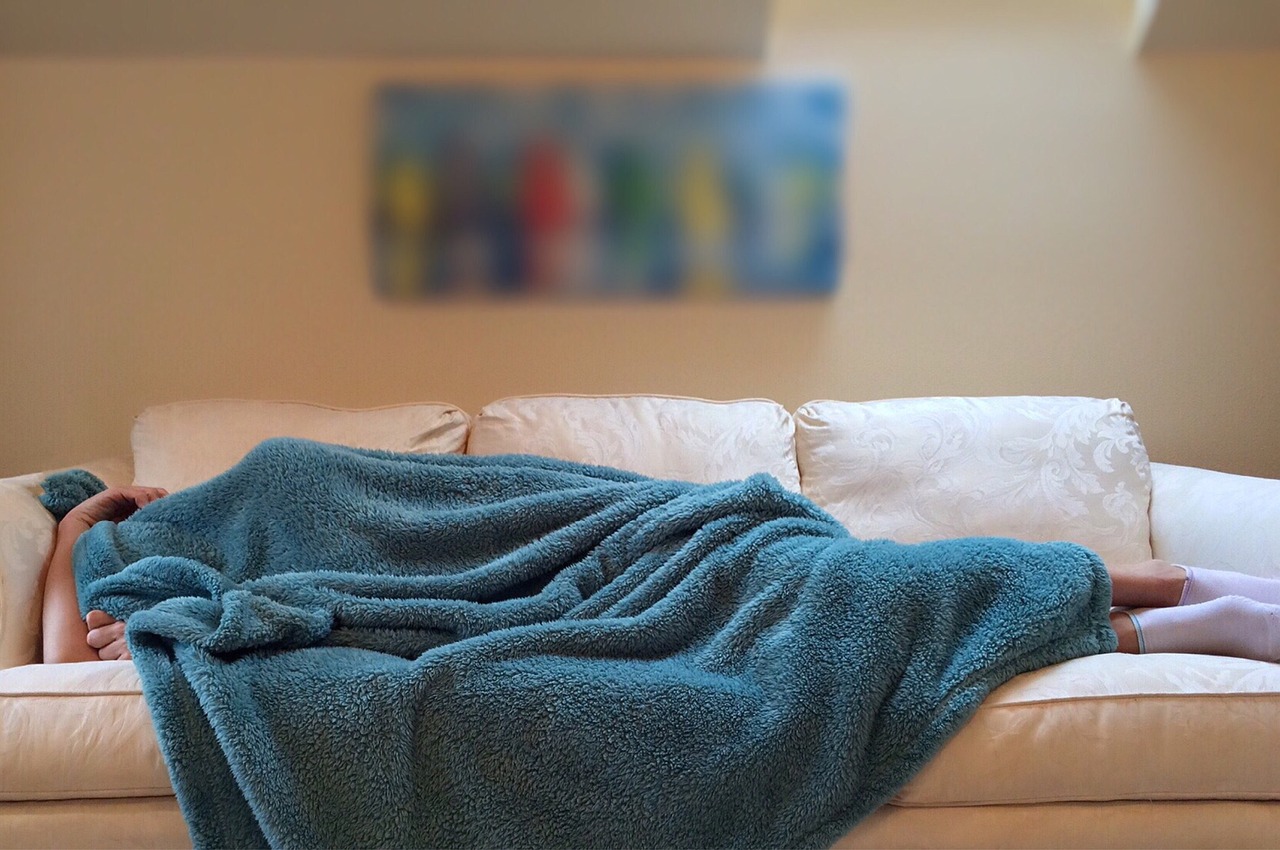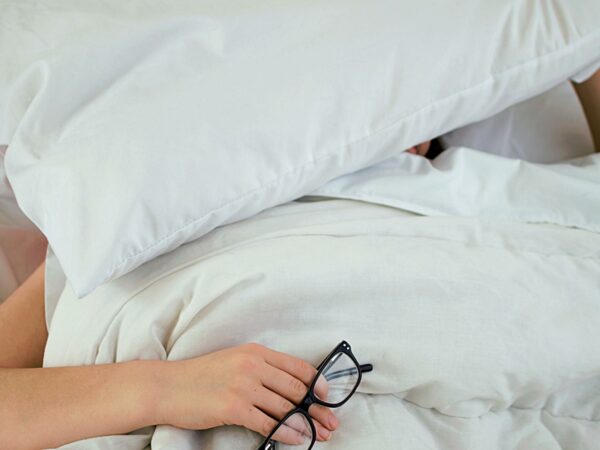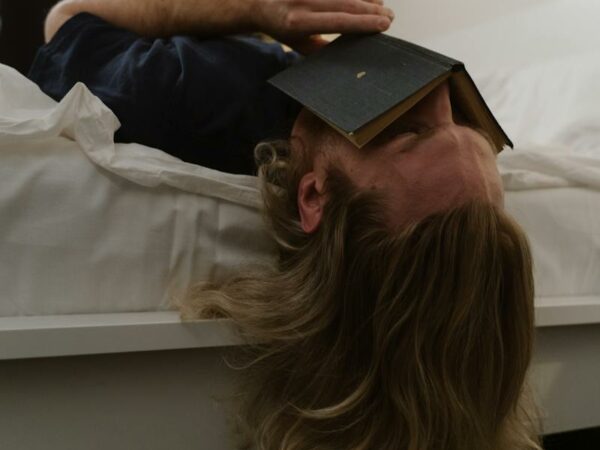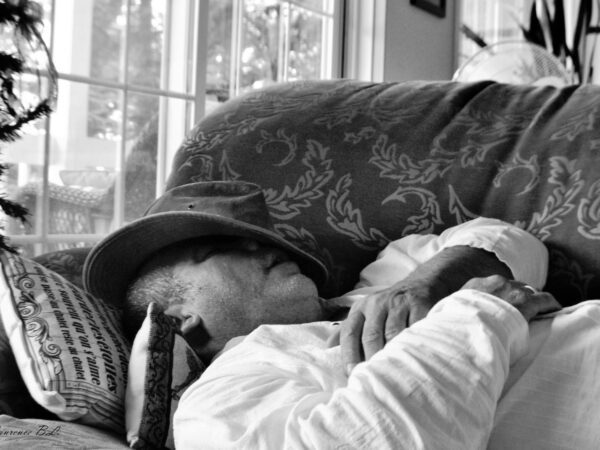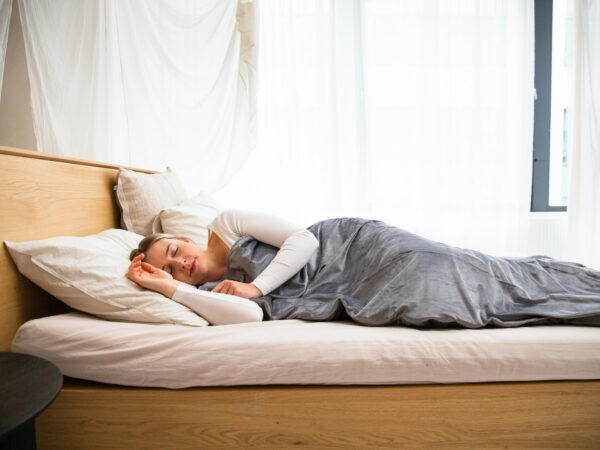Summary. Good sleep hygiene habits can significantly improve insomnia and help people get a better night’s sleep. Establishing a regular bedtime routine, avoiding caffeine and large meals before bed, and limiting time spent staring at screens in the evening are all important steps. Maintaining a regular sleep schedule and avoiding naps during the day can also help. Additionally, reducing stress, exercising regularly, and avoiding alcohol are key lifestyle changes that can help improve sleep quality and reduce insomnia.
Sleep is a crucial part of our physical and mental wellbeing. Nobody reaches their peak performance level without a good night sleep. However, it is estimated that one in three adults in the US struggles with insomnia. Fortunately, there are ways to improve your sleep habits to prevent or treat insomnia. Do you often feel exhausted and struggle to sleep at night? Or maybe you feel like you are sleeping well enough, but still wake up feeling unrested? If you can relate to these issues, then you are not alone. Many of us are going through the same thing, and there are things we can do to improve our sleep habits and make sure we get the rest we need.
Do you have any bad sleep routines? How many hours of sleep do you usually get during the week? Is caffeine or alcohol affecting your ability to sleep? Asking yourself these questions, and finding the answers, can help you identify potential issues that could be hindering your sleep quality. Once you have identified the problems that are causing your insomnia, there are simple steps that you can take to improve your sleep habits and manage your sleep better. Do you need to set a more realistic bedtime that is in sync with your body’s natural rhythm?
- Strategies to Get Better Sleep
- Harnessing Technology to Aid in Sleep
- Finding Relief with Sleep Medication
- Non-Pharmaceutical Sleep Aids
- Establishing Lasting Habits for Better Sleep
- When to Seek Professional Help
- Uncovering the Root Causes of Insomnia
- Solutions for Improved Sleep
- Sleeping Pill Solutions
- Beyond Pharmaceuticals: Alternatives to Sleeping Pills
- When to Consider Professional Help
- Bringing It All Together
- FAQ: All Your Questions Answered
What Causes Insomnia?

Insomnia can be a frustrating, painful, and exhausting battle. Though it affects millions of people around the world every day, getting relief isn’t always easy. Fortunately, by making a few simple lifestyle changes and following certain sleep habits, you can improve your quality of sleep and reduce the risk of insomnia and other sleep disorders. One of the first steps to take when attempting to improve your sleep habits is to understand the importance of consistency.
This helps to create a routine that your body can get used to and will make it easier to fall asleep when you lay down to rest. It’s also important to remember that the number of hours of sleep needed varies from person to person, so keep track of how much sleep you’re getting and adjust your schedule accordingly.
Another way to improve sleep habits is to minimize the distractions around you while you try to sleep. Doing activities like listening to calming music, reading, taking a warm bath, and practicing deep breathing can help your body wind down and relax for a good night’s sleep. Additionally, try to keep electronics such as phones and televisions far away from your bed, as the bright screens and sound can be distracting and interfere with the quality of your sleep.
Eating balanced meals, avoiding caffeine late in the day, and getting lightly active throughout the day can all help your body rest more efficiently. And don’t forget to get out in the sunshine and get some fresh air for some natural energy boosts.
Insomnia can be a difficult thing to overcome, but by making small lifestyle changes and following the proper sleep habits, you can improve your quality of sleep and reduce the risk of insomnia and other sleep disorders. So take the steps necessary to safeguard your future rest and free yourself from continuous sleepless nights.
Strategies to Get Better Sleep
This trick helps ensure that your body’s natural circadian rhythm stays regular. It is also important to take notice of your behaviors that may be interrupting your sleep. If you are using electronics, such as phones and computers, right before sleeping, then this could be interfering with your sleep patterns. Try to steer clear of devices and activities that can overstimulate your mind. Creating an ideal sleep environment is another key factor in getting a good night’s rest.
If your bedroom is too bright or too noisy, you can use blackout curtains and a white noise machine to help create better conditions for sleep. Consider also removing televisions and other electronics from the bedroom to eliminate additional distractions.
Create an Ideal Sleep Environment
Insomnia is a very real problem for many of us, with the Centers for Disease Control and Prevention estimating that nearly 10% of Americans struggle with the condition. Fortunately, sleep problems don’t have to be a lifelong affair. If you are looking to improve your sleep habits to prevent or treat insomnia, there are a few steps you can take. The first step is to create an ideal sleep environment. It’s important to create a bedroom that is dark, quiet, and cool.
Make sure to remove all electronic devices (computers, TVs, smart phones) and opt out of late-night light. Invest in blackout curtains for your windows to ensure your room is dark and quiet and a fan or air conditioner to cool it down. It may also be helpful to add some soft music or white noise to create a sense of restfulness.
Another important factor is to establish a bedtime routine. Start with a warm bath before your bedtime, followed by a few minutes of relaxation. Consider reading a book, doing some light stretching, or listening to calming music. Once in bed, avoid checking your phone or engaging in activities that could stimulate your brain.
Establish a Healthy Sleep Routine


For some, insomnia can mean sleepless nights and feeling exhausted during the day. Fortunately, there are many practical strategies you can use to achieve a better night’s sleep. The key is to find out what works for you and stick with it. Start by managing your daily schedule, both on and off the clock. Aim to establish steadiness by going to bed and waking up at the same time each day.
Instead, choose healthy activities such as walking, stretching or yoga to help you unwind and feel relaxed at night. Strategies such as keeping your bedroom dark, quiet, and cool can also help you to drift off. Avoid bright screens and television before bed and start winding down a few hours beforehand. Alternatively, listening to soothing music or a guided meditation can be beneficial in aiding your body to relax and let go of the day. It can also help to create a healthy bedtime routine. This could include a bath, soothing massage, reading a book or writing in your journal.
Practice Good Dietary and Lifestyle Habits


Here are some tips to help you out: Take steps to relax before bed: A hot shower or bath can be very calming and help to soothe the body. Similarly, some people practice yoga or stretching before bed, while others find relaxation techniques like listening to calm music, meditating, or journaling to be helpful in preparing for sleep. Whatever method you choose, aim to make it a regular, nightly routine to give your body a cue that it’s bedtime.
If you do need an energy boost later in the day, try drinking a cup of tea without caffeine such as chamomile tea or other herbal tea to help soothe your body. Create a comfortable sleep environment: Taking the time to create a sleep environment that is conducive to sleep can make a huge difference.
Make sure your bedroom is dark, quiet, and cool (around 68-70 degrees). Use blackout curtains to keep out any light, use earplugs if needed, and adjust the temperature until it’s just right for you. Keep the same bedtime and wake up time: One of the most important habits is to go to bed and wake up at the same time each day.
Try to keep a consistent sleep schedule, even on the weekends. Limit screen time before bed: Too much blue light exposure from screens can interfere with melatonin production, making it harder to get to sleep. Aim to put away devices about an hour before bed or if that’s not possible, use a blue light filter so that you’re not overexposed and can still enjoy some of your favorite shows or activities.
Find Ways to Manage Stress and Anxiety
Here are a few things you can do to get a restful night’s sleep: Create A Sleep-Friendly Environment: Make sure your bedroom is dark, quiet, and cool. Keeping it cool will help your body relax and drift into sleep. Also, avoid bright screens before bed and opt for low-light activities like reading a book.
Going to bed and waking up at the same time every day can help set the body’s internal clock and optimize the quality of your sleep. Exercise During The Day: While you don’t want to do intense exercise before bed, moderate activity during the day can help make you more tired when it’s time for bed. Also, regular exercise can help to reduce stress and anxiety, which can interfere with your sleep routine. Meditation and Relaxation: Before bed, take some time to relax and meditate.
Limit Caffeine and Alcohol: Caffeine and alcohol can both have a huge impact on your sleep. Make sure to have your last cup of coffee or glass of wine at least six hours before bedtime. These strategies can help you get a good night’s sleep and manage stress and anxiety. With a regular sleep schedule, a comfortable sleep environment, and healthy habits, you can prevent or treat insomnia and start sleeping soundly again.
Harnessing Technology to Aid in Sleep
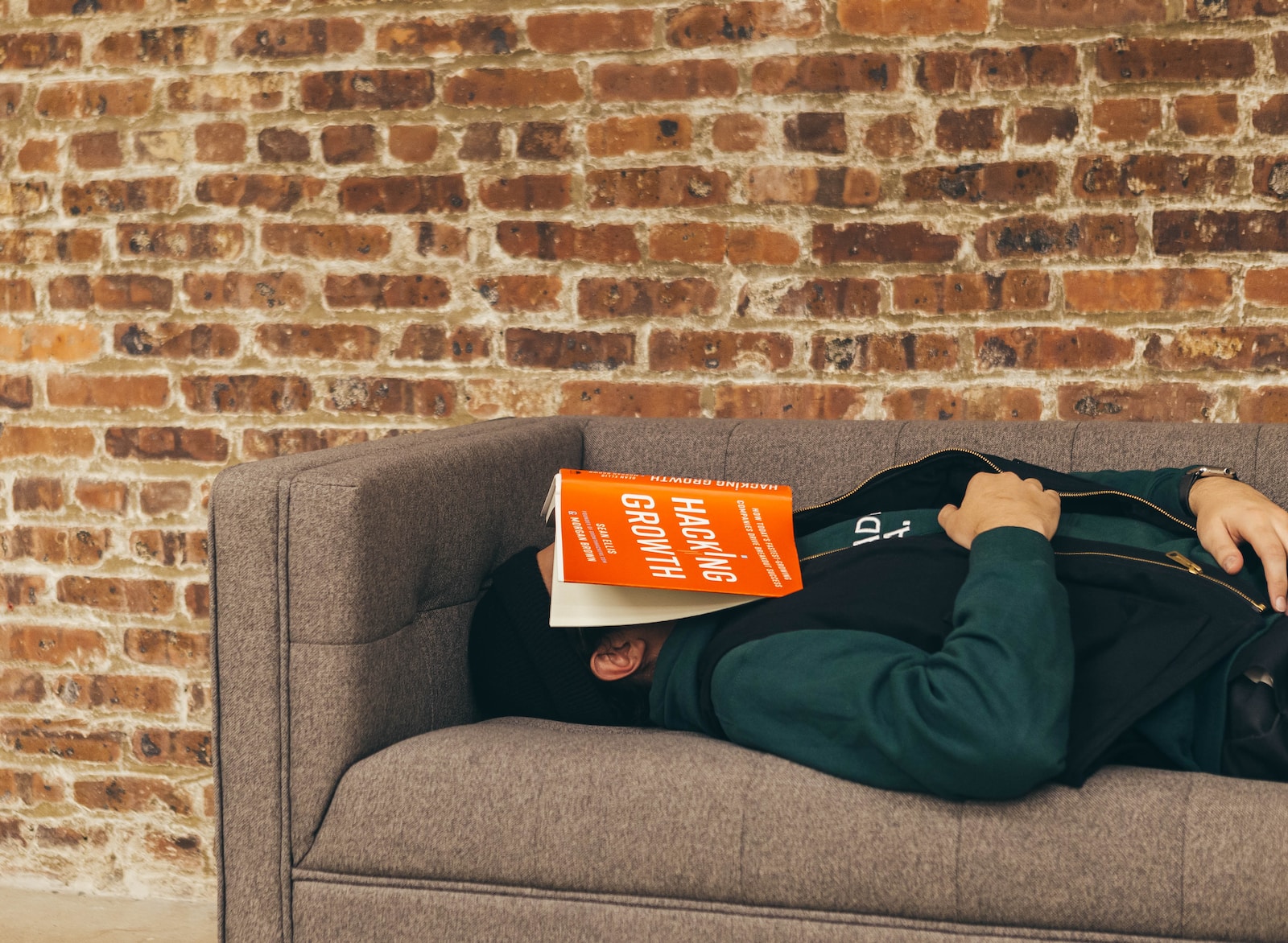

Technology can be an incredibly powerful tool when it comes to improving our sleep habits and treating insomnia. From sleep tracking apps to specialized white noise generators, here are just a few ways that people can utilize technology to get a better night’s rest. Tracking our sleep is the first step to improving our sleep habits. Specialized apps, such as Sleep Cycle, allow users to monitor their sleep patterns and see how current habits are affecting their rest.
Also, attention has been given to digital de-stressing techniques, such as meditation. Meditation apps, like Headspace, provide both guided and personalized meditation sessions for stress relief. Relaxing music, nature sounds, and even audio books can help lull users into a deep sleep. It’s important to find which works best for each individual and adjust accordingly. Many people find it difficult to fall asleep without white noise in the background, but unfortunately, fan blades aren’t always the most soothing of sounds.
Smart home devices and sensors can allow users to create the optimal environment for sleep. These devices are great for regulating temperature, light intensity, and even humidity to ensure the best conditions for deep, healthy sleep.
Finding Relief with Sleep Medication
However, while medications may help you sleep better, they can also cause side-effects and long-term dependency. So, what else can you do to help improve your sleep habits and get relief from insomnia? The first step is to look at your current sleep habits and adjust them, if needed. This includes switching off from work or other stressful activities and ensuring that your bedroom is a relaxing space, instead of being cluttered.
It’s important to establish a regular routine for bedtime and wake up times. If you can, try to make sure you’re going to bed (and getting up) at the same time every day, even on weekends or holidays – this can help to regulate your body’s internal clock and make you feel better rested.
Creating a nightly routine can also be helpful, such as having a warm cup of herbal or chamomile tea, taking a hot bath, reading until your eyes feel heavy, or doing some simple stretches. Getting the right amount of physical activity can also be helpful in getting better sleep. Depending on your age, the American College of Sports Medicine recommends that adults get between five and seven hours of exercise a week.
Non-Pharmaceutical Sleep Aids


If you are struggling with insomnia or other sleep disturbances caused by poor patterns, it can be tempting to reach for a pill bottle to reverse the problem. But chances are, no matter what you take, it won’t solve the underlying issues causing your sleep problems. Non-pharmaceutical sleep aids are a better alternative to help you improve your sleep habits and prevent or treat insomnia.
The first step in improving your sleep habits is to assess your lifestyle. Are you getting enough exercise? Are you doing something calming shortly before bedtime that helps you relax? Do you have regular sleeping patterns (as in, do you usually sleep and wake up at the same times each day and night)? Are you exposed to too much light at night?
Your diet also plays a role in how well you sleep. Try to eat meals at roughly the same time every day, and avoid overeating late at night before bedtime. Eating unprocessed foods and getting enough vitamins and minerals is essential to good mental health, which in turn helps you sleep better. Conversely, if you consume too much caffeine, alcohol or sugar, it can contribute to insomnia and other sleep disturbances. It pays to create a regular sleep routine. Make sure your bedroom environment is conducive for sleeping. If it’s too bright, consider using blackout curtains to block out light.
It also helps to set the temperature to a cool degree and to avoid screen time before bed. All of these steps can help to relax you before the night and prepare your body for sleep. When it comes to non-pharmaceutical sleep aids, experts recommend therapies such as cognitive behavioral therapy or relaxation techniques like yoga and meditation.
These activities have been shown to improve sleep quality, decrease anxiety, and help establish healthy sleeping patterns. If anxiety and stress are contributing to your insomnia, practicing regular mindfulness or taking a warm bath before bed may help.
Establishing Lasting Habits for Better Sleep
First, create a relaxing atmosphere in your bedroom. Invest in a comfortable mattress and pillow, and make sure that your room is dark, at the right temperature, and free from distractions, such as phones, TVs, and computers. You can also add relaxing elements like dim lighting, scented candles, and comfortable bedding to create a safe place for sleep.
Go to bed and wake up at the same time every day, and do not deviate from this schedule. Additionally, strive to avoid stimulating activities and conversations before bedtime, and instead focus on calming, relaxing activities to start winding down for the night.
Third, if you have difficulty sleeping, try mindfulness techniques such as meditation or yoga. These activities can help you both relax and become more aware of your body’s natural rhythms. Additionally, try to reduce your caffeine intake, and limit how much you eat and drink right before bedtime.
You should also avoid using electronic devices before bed. Not only do these devices tend to be too stimulating for pre-bedtime activities, but their blue light can have a negative effect on your sleep.
When to Seek Professional Help
Insomnia is a sleep disorder and can lead to many healthcare problems, both physical and mental. Thankfully, there are steps you can take to improve and treat your insomnia. Before making any drastic changes on your own, however, it is important to seek professional help in order to get the best care possible.
It is often characterized by difficulty with initiating and maintaining sleep, waking up during the night, and feeling exhausted during the day. It can be caused by physical or psychological issues, and can be worsened by lifestyle changes such as stress and anxiety. There are both therapeutic and pharmacological treatments available, and it is often recommended to try both.
When it comes to how to improve sleep habits to treat insomnia, the first step is to speak with a doctor. A doctor can help you identify any underlying conditions that may be causing your insomnia, as well as discuss different therapeutic treatments. Depending on the cause of your insomnia, you may be asked to start a sleep hygiene program. This includes developing a regular sleep-wake schedule, avoiding large meals and alcohol prior to bedtime, and avoiding caffeine and nicotine several hours before sleeping.
In addition to talking to a doctor, you can also consider pharmacological treatments for treating your insomnia. This includes medications that are specifically designed to assist with sleep, as well as medications that are used to treat underlying conditions such as stress and anxiety. It is important to speak to your doctor before starting any medications and not to make any changes to your sleep routine without consulting them first as some medications may not be compatible with certain sleep habits.
If you are struggling with getting to sleep or staying asleep, it is important to seek professional help. A doctor can provide insight into the underlying causes of your insomnia and then help you to develop a treatment plan that works for you. With a combination of sleep hygiene, stress management, and medication, you can start to get back to a healthy sleep routine and start feeling better.
Uncovering the Root Causes of Insomnia
Realizing that insomnia is often a symptom of an underlying issue can be a great first step in successfully managing it. Although challenges with insomnia can cause symptoms such as feeling tired during the day, cognitive impairments such as difficulty concentrating, and physical issues such as headaches, there are ways to address these root causes.
Addressing these underlying issues can be the key to improving your sleep habits and getting a restful night’s sleep. The first step in uncovering the root causes of insomnia is to identify patterns in your lifestyle and behaviors.
Common sleep disruptors may include drinking caffeine late in the day, working at night, using electronic devices in bed, or not allowign yourself enough time to wind down. Uncovering underlying issues related to anxiety, stress, or depression can help too. Keeping a sleep diary or recalling your thoughts right before bed can also be beneficial in unvovering the causes of insomnia.
Once you have identified patterns or behaviors that may be triggering your insomnia, the next step is to focus on making long-term lifestyle changes that will allow you to prioritize your sleep. This may require changes to your daily routine, such as organizing a consistent bedtime or avoiding stimulants like caffeine late in the day.
Additionally, make sure to keep the bedroom a quiet and comforting space, reduce light stimulation, and avoid using electronics before bed. Finally, if uncovering the root causes of insomnia reveals underlying psychological issues, seeking out professional help can be invaluable.
Cognitive-behavioral therapy is suggested for people suffering from chronic insomnia, and can provide insight into how our thoughts and beliefs affect our sleep. A cognitive-behavioral therapist can help identify and address the underlying causes of insomnia, providing tools and resources to help shift the negative patterns that may keep us awake at night.
Solutions for Improved Sleep
To ensure healthy sleep habits, start by creating a routine and sticking to it. Go to bed and wake up at the same time every day.Avoid using screens and electrical devices for at least an hour before bedtime and try to find calming activities such as reading or listening to calming music. Make sure your room is cool, quiet and dark while sleeping. If noise is an issue, try using a white noise machine or earplugs.
To prevent or treat insomnia, limit your caffeine intake and avoid stimulants, especially after noon. If you need to nap during the day, make sure you get up after no more than 20 minutes and stay away from naps later in the day.Exercise regularly, but avoid exercise late at night. In addition to these lifestyle modifications, cognitive behavioral therapy (CBT) and relaxation techniques can help improve your sleep habits and treat insomnia. CBT teaches individuals to identify and change their behavior and thought patterns associated with insomnia.
Relaxation techniques such as breathing exercises, meditation, visualization, or muscle relaxation exercises can help calm the mind and relax the body so you can sleep better. Sleep is essential for overall health and improved quality of life. By following these simple tips and practicing good sleep habits, you can improve your sleep quality and achieve restorative sleep.
Developing a Consistent Sleep Schedule
It is also important to try to reduce distractions in the bedroom, as loud noises and bright lights can disrupt sleep and make it much harder to enter deep sleep states. Make sure that the bedroom is a dark, comfortable place for sleeping. If you have a noise machine or a fan, these can be used to block out distracting sounds and help you sleep better.
If you have a pet, you can train them to stay out of the bedroom for the majority of the night. Try to avoid stimulants such as caffeine and nicotine, as these can make it difficult for the body and mind to relax. You should also avoid exercising within 3-4 hours of going to bed, as this can also make it more difficult to fall asleep.
This could include taking a relaxing bath, reading, or doing some light stretching. In addition, try to avoid screens, such as TVs, computers and phones, for at least an hour before bedtime.
The blue light emitted from screens can disrupt sleep and disrupt melatonin production. By following this advice, you can greatly improve your sleep habits. This will help you to rest more deeply and to feel more refreshed when you wake up in the morning, allowing you to better tackle the day ahead.
Practicing Healthy Eating and Lifestyle Choices
If so, then it’s important to note that the best way to improve your sleep routine is by implementing healthy eating and lifestyle choices. Eating the right foods and getting enough restful activity during the day are essential if you’re hoping to ward off insomnia or prevent it from worsening. Start by creating a routine for yourself which includes a regular sleeping and waking time and sticking with it as closely as possible.
Additionally, including relaxing activities in your regular routine and not overstimulating your mind or body shortly before sleep can be beneficial. Next, look at what you’re eating and aim to stick to a healthy diet. Incorporating more plant-based proteins and vegetables is essential in improving your quality of sleep.
Opt for whole-grain carbohydrates, avoid consuming too much sugar, and cut back on the caffeine intake. These steps will help your body maintain its energy levels and allow you to rest better. Regular physical exercise during the day can also have a positive impact on your slumber.
Aim for at least 30 minutes of moderate-intensity exercise a day or break it up into bouts of 10 minutes or more throughout the day. Finally, look to make your sleeping environment as comfortable and conducive to sleep as possible. Avoid bright screens before bed, dim the lights, clear the clutter and set the thermostat to a comfortable temperature.
Pay attention to the small details that create an optimal sleep environment. By following these tips, you’ll be able to make simple adjustments that can have a big impact on the quality of your sleep. So if you’re struggling with insomnia, try to implement healthier eating and lifestyle choices as part of a structured routine – you’ll be thankful you did.
Sleeping Pill Solutions
Many people who struggle with insomnia often turn to sleeping pills, but they don’t typically provide a long-term, sustainable solution. There are a number of strategies and tactics you can employ in order to improve your sleep habits, so that you can enjoy a restful, uninterrupted sleep without relying on sleeping pills. One of the most important steps is to establish a regular bedtime routine. Going to bed at the same time each night, and waking up at the same time each morning, helps to keep your circadian rhythms on track.
Another practice to help you improve your sleep habits is to avoid certain activities before bed. Avoiding caffeine, nicotine, and alcohol in the few hours before bed can significantly help. It can also help to avoid looking at screens before bed, both from televisions and other devices. Blue light from screens can delay the onset of sleep and make it more difficult to stay asleep. Exercise and relaxation techniques can also help you to improve your sleep hygiene. Aim to exercise during the day, and make sure not to do it too close to bedtime.
Relaxing activities like reading or listening to calming music can help to ease your body and mind into sleep. Finally, it helps to have a comfortable environment for sleep. A dark, quiet, and cool bedroom is ideal for restful sleep, free from distractions. Investing in quality bedding and extra pillows can also be helpful. By following these strategies, you’ll be able to improve your sleep habits and enjoy a better night’s sleep. Making these kinds of lifestyle and environmental changes are essential in preventing and treating insomnia without having to resort to sleeping pills. “
Beyond Pharmaceuticals: Alternatives to Sleeping Pills
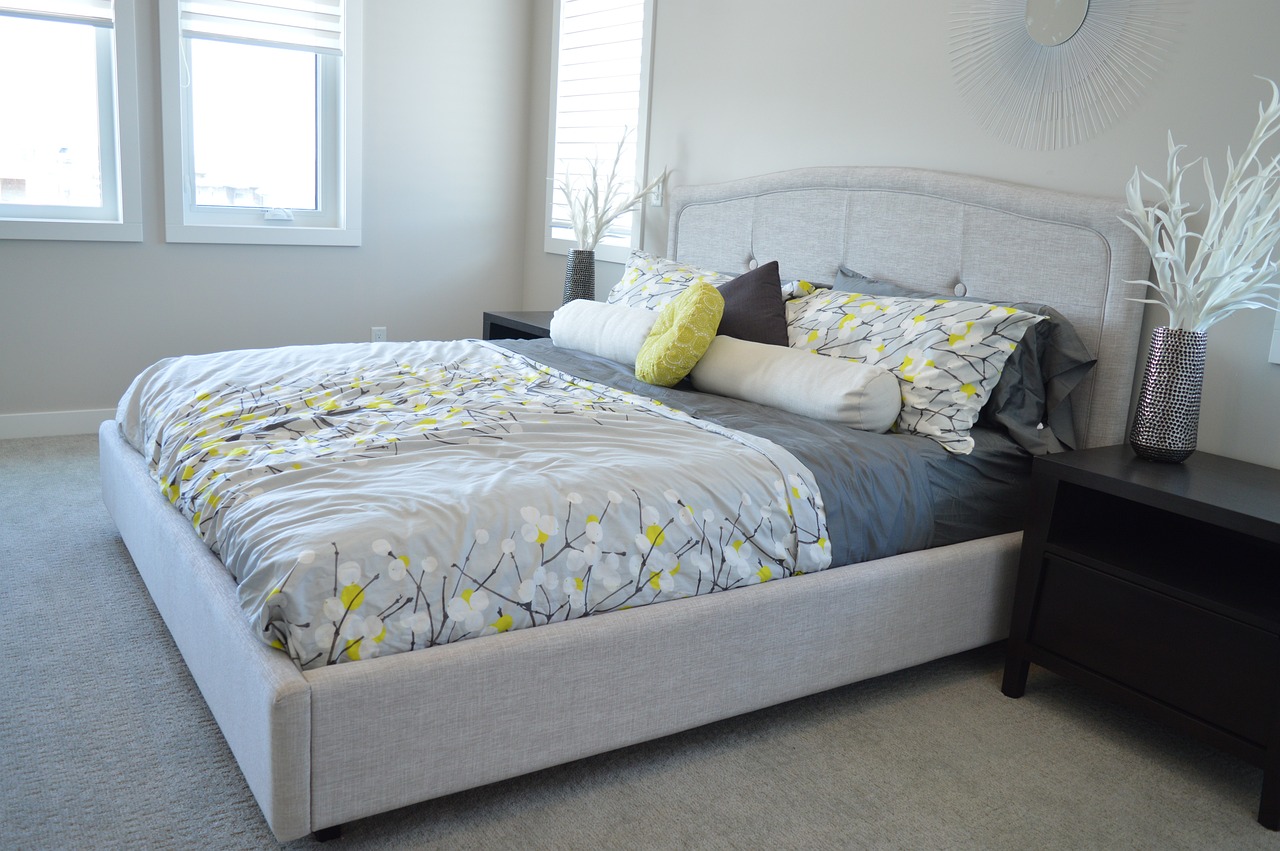

The search for a magical pill that would provide quick relief from insomnia may have led you to investigate sleeping pills. And while prescription medications may offer short-term relief, they’re not a permanent solution to your sleep problems. Not to mention, depending on a medication to get to sleep can lead to dependency and can even have negative long-term impact on your health.
Fortunately, there are several alternative strategies that can be used to improve your sleep habits and help treat or prevent insomnia. The first thing to consider when it comes to improving your sleep habits is lifestyle changes. Start by assessing your sleep hygiene—that’s the habits and environment that either promote or hinder quality sleep. Set up your bedroom to be a relaxing and comfortable sleep environment by keeping it dark, quiet, and cool. Regulate your caffeine and alcohol intake, as they can interfere with quality sleep.
A regular pattern of winding down in the evening can be a huge help. Regular exercising is also a great way to improve sleep. It doesn’t necessary mean that you have to go to the gym every day, just dedicate a few hours each week to physical activity. Exercise can help you feel more relaxed in the evenings, reducing stress and some of the sleeping difficulties that stress can cause. Be mindful of what you eat and drink too. Eating a light, healthy meal before bedtime can actually help you sleep better. Avoiding caffeine late in the day can be very beneficial, as can having a light snack before sleep.
It’s also important that you make sure not to nap during the day too much. Sleep debt can build up which causes sleepiness during the day and the inability to sleep soundly at night. Naps are fine, as long as they happen before 3pm and last no more than an hour. Lastly, create a wind-down period at least an hour before you plan to sleep.
Dim the lights and turn off tech devices. Doing some breathing exercises or reading a book can help with relaxation. Improving your sleep habits can make a big difference when it comes to both treating and preventing insomnia. With a few lifestyle changes and mindfulness practices, you can learn to sleep better and get the rest that your body and mind need.
When to Consider Professional Help
When it comes to improving our sleep habits, many of us find ourselves asking: how can I prevent or better manage my insomnia? It can be tempting to take matters into our own hands, opting for self-help strategies such as reading up on sleep hygiene, adjusting our daily routine, or taking herbal remedies. But when this doesn’t provide us with the desired relief, it can be a sign that it’s time to seek professional help. We all experience disrupted sleep from time to time, and when that happens, it can be reassuring to know we’re not alone.
A professional can help determine whether or not your symptoms meet criteria for a specific sleep disorder and propose an appropriate course of action. For example, if your sleep issues persist for more than six months and they are causing significant functional impairment in your life, professional help can be beneficial. Sleep hygiene is an important component of good sleep and research continues to show how being aware of and managing our daily habits can have positive effects on our sleep and overall health.
Professional help such as cognitive-behavioral therapy (CBT) may be necessary to tackle any emotional or psychological causes. Overall, for some of us, self-help strategies may be enough to manage our sleep issues, while for others, professional help may offer a valuable guide to healthier and more restful sleep. If you are dealing with persistent insomnia and the impact it has on your life has become too much to bear, seek out a mental health professional to analyze the underlying causes and suggest an effective approach for your particular needs.
Bringing It All Together
Learning how to improve your sleep habits can be an important step to preventing or treating insomnia. Insomnia is a common condition that often results in impaired daily functioning due to disrupted sleep. It is important to understand the causes and symptoms of insomnia in order to improve your sleep habits.
By making changes to your environment, lifestyle and sleep routine, you can help relieve insomnia, improve your sleep habits, and wake up feeling better each day. One of the best ways to improve your sleep habits is to make sure to get plenty of physical activity. Regular exercise can help you to relax, boost your energy levels, and fall asleep faster.
Going to bed at the same time every night and only sleeping in on the weekends can help your body adjust to a normal bedtime. Turning off electronic devices and creating a clean and healthy sleeping environment can also be beneficial. Blue screens from electronics such as phones and computers can affect your circadian rhythm, the body’s internal clock. Therefore, refrain from using these devices a couple hours before bed. Make sure to remove any distractions, such as television noise or light coming in from the window, to ensure your environment is as dark and quiet as possible for a more restful night of sleep.
Mindfulness techniques such as breathing exercises or light yoga stretches can be beneficial to both your physical and mental health. Practicing these types of activities can help to reduce anxiety and improve your general wellbeing, which in turn, can help you to get a better night’s sleep. These are just a few of the ways that you can improve your sleep habits to help prevent and treat insomnia. Although these techniques may not be a cure-all, they can be a great way to make sure to prioritize good sleep hygiene habits. Do you have any other tips for improving sleep habits? How have these tips helped to improve your sleep?
FAQ: All Your Questions Answered
What is the golden rule of sleep?
The golden rule of sleep is to ensure you get between 7–9 hours of sleep every night.
What are 3 rules for better sleep?
Establish a consistent bedtime and wake time. 2. Make sure your bedroom is comfortable and quiet. 3. Avoid screens, bright lights, and caffeine close to bedtime.
What is the rule of 10 3 2 1 0 sleep?
The technique is as follows: Spend 10 minutes in a dimly lit room. Engage in relaxing activities such as reading a book, or listening to calming music. Spend 3 minutes in a slightly darker room. Focus on relaxing your body and your breathing. Spend 2 minutes in a darker room. Allow your body to relax and focus on your breathing. Spend 1 minute in the dark, and imagine a peaceful scene. Finally, spend 0 minutes in the dark room. Focus on calming your breathing and allowing your body to drift off to sleep.
Used Reference Links:
https://www.ncbi.nlm.nih.gov/books/NBK279320/
https://sleepeducation.org/healthy-sleep/healthy-sleep-habits/


